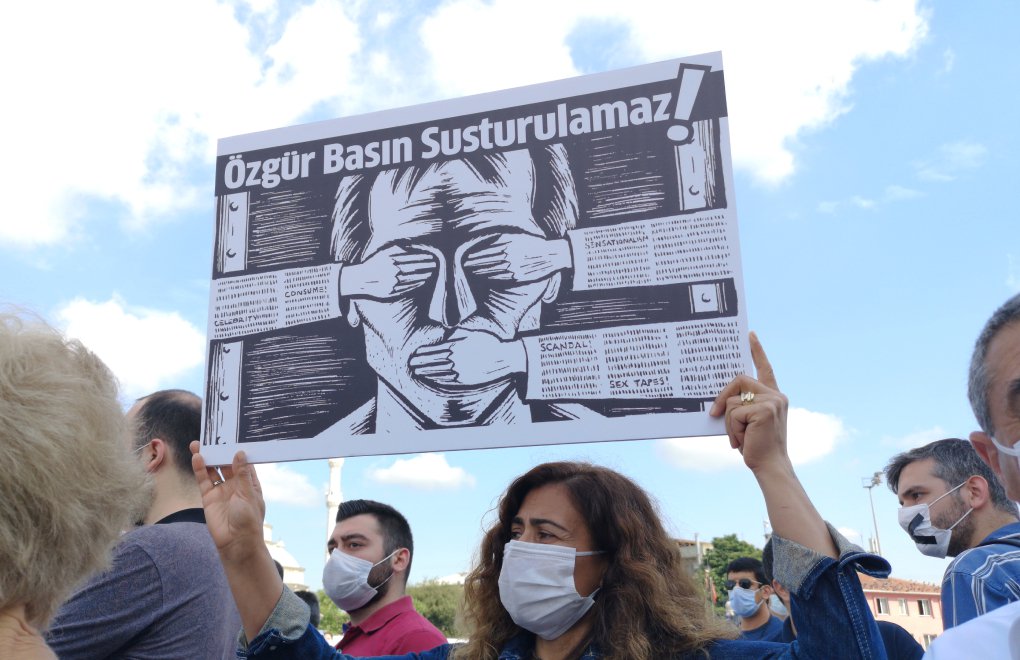Photo: Hikmet Adal-bianet
Click to read the article in Turkish / Kurdish
The committee to protect journalists (CPJ) issued a statement regarding the journalists who were arrested yesterday (June 16).
"Turkish authorities should immediately release the 15 journalists and one media worker still being held after last week's mass detention of 19 journalists, two media workers, and one source for allegedly being members of a terrorist organization, " said CPJ.
Gulnoza Said, CPJ's Europe and Central Asia program coordinator, in New York also said, that Turkish authorities should immediately release the journalists who were arrested in Diyarbakır for no apparent reason.
"Arresting journalists under a cloud of secrecy and keeping them in detention for an undetermined period until a trial is an unacceptable attack on the freedom of the press."
"Turkey must end jailing journalists with little evidence or justification and using pre-trial detention as punishment."
What happened?
Sixteen journalists who were detained in the predominantly Kurdish province of Diyarbakır during last week's police raids were remanded in custody yesterday(June 16).
Aziz Oruç, an editor for the Mezopotamya Agency (MA), Safiye Alagaş, the news manager of JinNews, Serdar Altan, the co-chair of the Dicle Fırat Journalists Association (DFGD), Mehmet Ali Ertaş, the managing editor of the Xwebun newspaper, Neşe Toprak, Mehmet Şahin, Zeynel Abidin Bulut, Elif Üngör, Remziye Temel, Suat Doğuhan, Lezgin Akdeniz, İbrahim Koyuncu, Abdurrahman Öncü, Ramazan Geciken and Mazlum Güler were detained on the charges of "membership of an organisation" while Gülşen Koçuk, Kadir Bayram, Mehmet Yalçın, Esmer Tunç and Feynaz Koçuk, and İhsan Ergünlü, who was also detained along with the journalists, were released on probation.
Resul Temur, the lawyer of 16 journalists spoke to bianet about the accusations against the journalists during the interrogation.
"There is no crime interrogation regarding the actions of 16 journalists, it is journalism being interrogated."
"There might be more arrests, detention warrants. The public and professional press organizations have a great responsibility. Freedom of the press should be protected."
"For example, the expressions such as 'Kurdish question' and 'war' were used in the program that Aziz Oruç was presenting. He was asked, 'What do you mean by the Kurdish question?', 'What do you mean by war, do you define the problem between the organization and the state as war?', 'Why do you call it war?'"
"This is not only the case for Aziz Oruç, it was the same for all other journalists, the language or the content of the programs have been the subject of accusations."
CLICK - Journalism questioned: 'What do you mean by the Kurdish question?'
(SD/TB)





as.jpg)